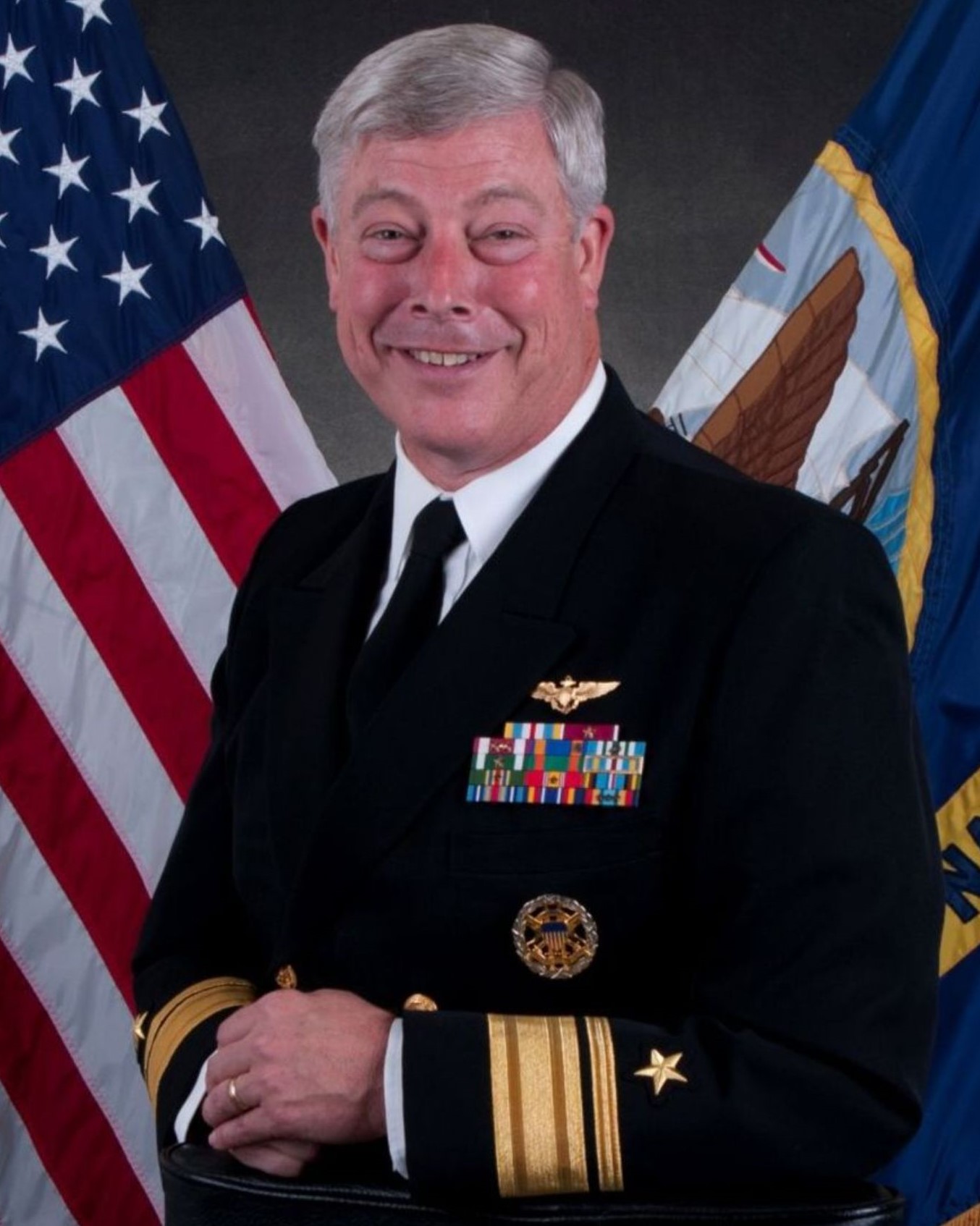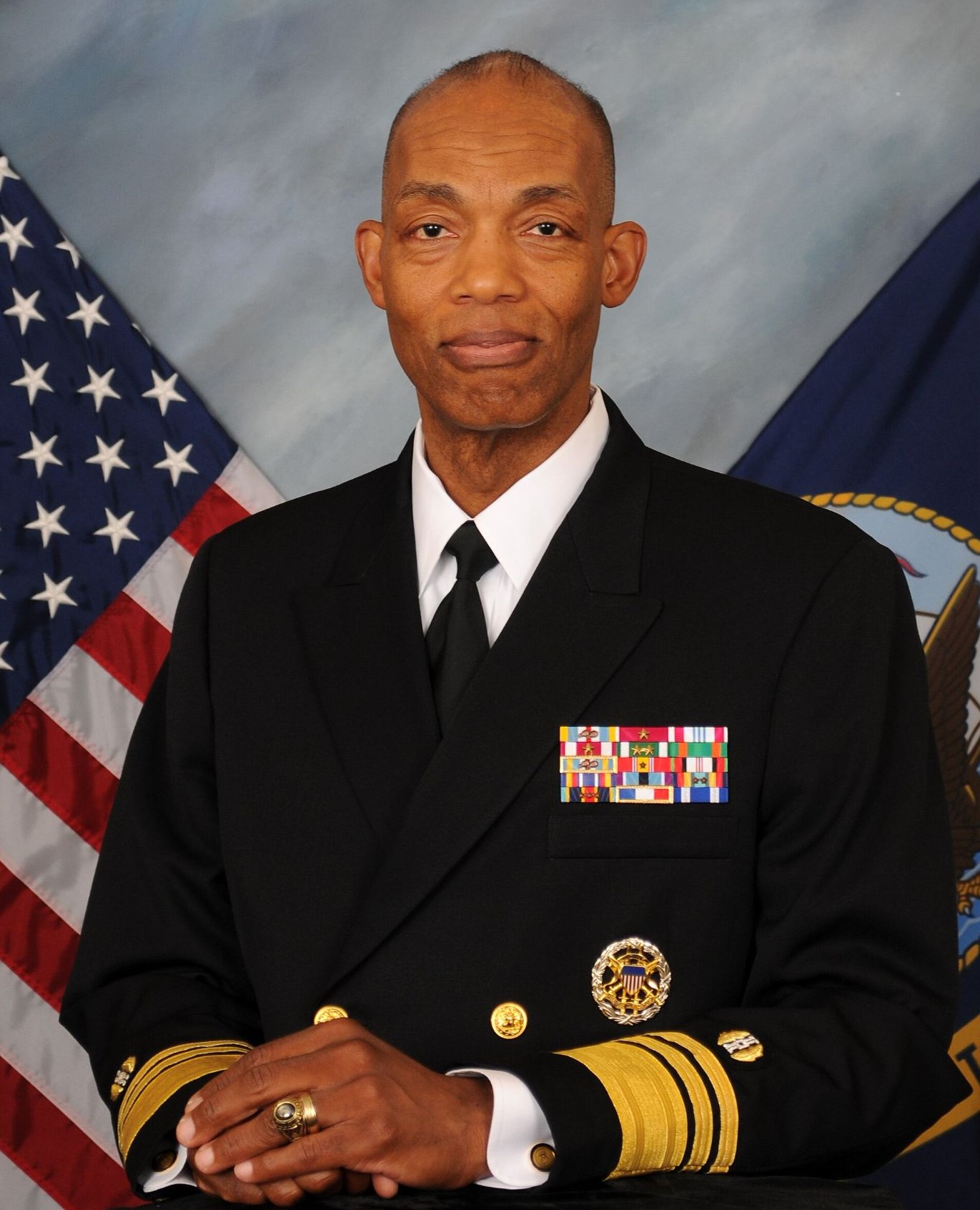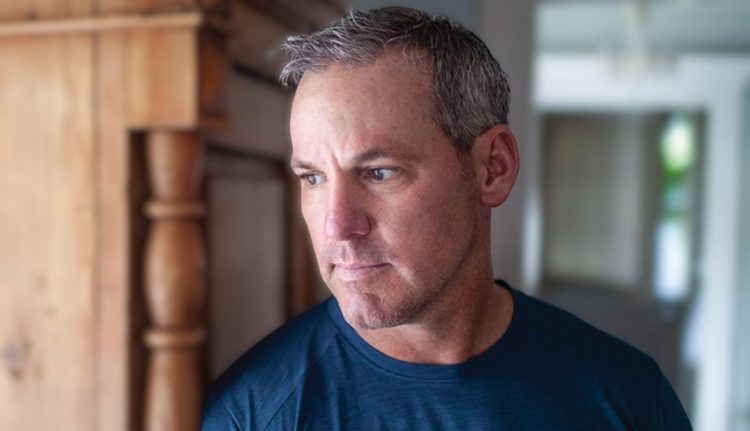There is very little in this life that would be more devastating than being convicted and imprisoned for a crime you did not commit. That is exactly what happened to Navy Senior Chief Special Warfare Operator (SEAL) Keith Barry. With over 18 years of dedicated service to his country, Senior Chief Barry found himself at the center of a controversial case that would challenge the integrity of the Navy’s legal proceedings and change his life forever. He ended up serving two and a half years for a crime he did not commit.
Barry is a decorated operator with multiple combat deployments and military commendations. He participated in over 150 combat missions and suffers from a traumatic brain injury as the result of combat and multiple improvised explosive devices. He’s a senior leader who can be counted on when times get tough. What happened to Senior Chief Barry would break most men. The fact it didn’t break Keith is a testament to his strength and his undying belief in himself.
I had the good fortune to be able to interview the ex-SEAL a couple of months ago. He’s quite an impressive individual. I’ll explain his ordeal the best I can.
The Accusation and Conviction
In 2014, Barry was charged with two counts of rape for alleged non-consensual sex with his long-time girlfriend. There had been no issues in their relationship until Barry decided it was time to break things off. To understate matters, that didn’t go over well with his girlfriend. After the breakup, she talked with her friends about what to do. A couple of days after their last encounter, she went to Barry’s command, saying their last sex act was non-consensual. That accusation was all it took to throw Barry’s life into a downward spiral and chaos.
Before we retry his story in this article, this is not an ongoing case of maybe he’s guilty, and maybe he’s not. Keith Barry’s conviction was ultimately overturned by the military’s highest court. There is no doubt. The man is innocent. The system was guilty.
Back to our story.
Barry’s accuser, who was known by only her initials in court documents, also took to Facebook in the days after the encounter and accused him publicly of sexual assault. She later sought a gynecological exam and the help of a therapist to support her claims.
Despite maintaining his innocence throughout the ordeal and being advised not to testify due to the disjointed and rarely believable testimony of his former girlfriend, a military judge convicted him on one count during a general court-martial. The sentence was severe: three years of confinement and a dishonorable discharge from the Navy, reduction in rank from Senior Chief (E-8) to E-1, and registration as a sex offender.
The Convening Authority’s Dilemma
Rear Admiral Patrick Lorge, then-Commander of Navy Region Southwest in San Diego, served as the convening authority of the court-martial in 2015. In a surprising turn of events, RADM Lorge approved the sentence despite harboring significant doubts about Barry’s guilt.

Since RADM Lorge was the Commander of Navy Region Southwest, he had the authority to overturn the military judge’s guilty verdict. Despite his serious doubts, he let Barry go to jail.
Military law does not work the same as civilian law. In the military system, flag officers (generals or admirals) who convene court martials also have the power to change the verdict of the judge (or jury) if he or she does not agree with the findings.
Three years later, after Keith’s release from jail, RADM Lorge had an immediate and grateful change of heart when approached by Barry’s appeal attorney. RADM Lorge had agonized over this case for years.
He then stated in a signed affidavit filed with the US Court of Appeals for the Armed Forces that concern over a backlash from the Deputy JAG, now retired VADM James Crawford III, President Obama, and members of Congress was what caused him to bury his true belief of what justice should have been in Barry’s case. He was illegally influenced and directed to follow political correctness or face the consequences regardless of what the truth was. RADM Lorge, on the verge of retirement, did not want to tempt fate or anger Washington.
To his credit, retired RADM Lorge admitted he let himself be unduly influenced by others. In many ways, he is the hero of this story. His is a story of misguidance and redemption. RADM Lorge asked the appellate judges in writing to “Forgive my failure in leadership and right the wrong I committed in his case.” He pleaded that they “allow an innocent man to remain innocent.” RADM Lorge could have kept his feelings to himself at the price of knowing an innocent man was unjustly incarcerated. Instead, he acted on the courage of his convictions and spoke out. For that, although delayed, he is to be commended.
RADM Lorge further stated he felt pressured by his politically aware staff attorneys to throw the book at Chief Barry. To fully understand why the admiral felt this way, one needs to consider the political climate of the time. According to RADM Lorge:
“At the time, the political climate regarding sexual assault in the military was such that a decision to disapprove findings, regardless of merit, would bring hate and discontent on the Navy from the president, as well as DEI focused senators including Senator Kirsten Gillibrand.”
There we go. Now we have names. The Democrat senator from New York supposedly felt the military condoned a culture of sexual violence and harassment against women. It seemed, in her opinion, not finding for the alleged victim in this case would send the wrong message to the public.
RADM Lorge was being pressed by all sides. The judge advocate general of the Navy at the time, Vice Admiral Nanette DeRenzi, expressed her concerns to Admiral Lorge. She worried about the reputation of the Navy and reminded him high-level military commanders were often “questioned by Congress and other political, military leaders, including the president” when high-profile sex crimes resulted in not guilty verdicts. In a less vague statement, RADM Lorge reported Vice Admiral James Crawford III, his supervisor at the time (who would go on to be the 43rd Judge Advocate General of the Navy), said, “If you disapprove the findings, it will ruin your career.” It seemed that not many people were concerned about Keith Barry’s career at this time, except for, of course, Keith Barry.
Unlawful Command Influence

Barry’s case took a dramatic turn when a whistle-blower revealed allegations of unlawful command influence (UCI). This trigger led to RADM Lorge’s written confession of facts. The focus of these allegations was Vice Admiral Crawford. Barry’s defense team argued Crawford’s influence led to his prosecution, conviction, and sentencing. Lorge would have overturned the initial finding of guilt had it not been for the pressure applied by Crawford and others.
The Appeal and Reversal
In a landmark decision, the U.S. Court of Appeals for the Armed Forces (CAAF) overturned Barry’s conviction in 2018. The court’s ruling was based on the presence of unlawful command influence, which had tainted the entire case. The CAAF dismissed the case “with prejudice,” meaning the government could not renew the same charges against Barry. Senior Chief Barry was returned to active duty at E-8 rank and allowed to serve until retirement one year later. The initial charges never held merit.
Time Served and Vindication
Barry spent two and a half years in prison for a crime he did not commit. The reversal of his conviction was a vindication of his long-standing claim of innocence, but it came at a significant personal cost. For a time in prison, Barry was denied his prescription medication for refusing to sign a confession. Things got to the point where he pondered suicide. Then he thought, if he killed himself, no one would ever know the truth. They would have thought he had taken his life out of guilt or weakness. He clung to hope, fighting one day at a time. He is still fighting today.
Barry tells how he kept to himself during his incarceration, other than during visits from supportive friends. In a way, being a SEAL in a military jail makes you a target. You are a default badass, and if a wannabe badass takes you on in a fight, he might up his prison rep. Keith had no time for such nonsense, so he kept his distance and minded his business. He was concerned about what would happen if he was forced to fight to defend himself and then hurt someone badly. Then, in the eyes of the system, he would have committed a crime and given them a legitimate reason to lock him up further.
Barry turned to stoic philosophy, quickly internalizing the teachings of Marcus Aurelius, who taught, “The obstacle is the way.” This means facing troubles head-on, ultimately facilitating progress and development. His new horrific challenge became an opportunity to learn and grow stronger and wiser.
Implications for Military Justice
This case has far-reaching implications for the military justice system. It highlights the potential for external pressures to influence legal proceedings and raises questions about the safeguards in place to protect service members from wrongful convictions. The case proved high-ranking JAG officers can exert unlawful influence on legal proceedings. When that happens, it undermines the integrity of the entire military justice system. This set an important legal precedent.
President Trump has recently fired senior JAG officers who oversaw such injustices. We can all hope that this will help change the culture. Further we pray that some recognition of command failures can result in an apology and compensation to the victims of military injustice.
The Barry case demonstrated how external political pressures regarding sexual assault cases in the military can potentially influence legal decisions and result in unfair trials.
The reversal of Keith’s wrongful conviction and exoneration after serving considerable time in prison demonstrates the system’s capacity for self-correction, albeit belatedly. The case prompted numerous discussions and actions involving needed reforms in the military justice system to prevent future occurrences of unlawful command influence. Sadly, there have been many others.
The case also underscores the importance of maintaining the independence of the convening authority and keeping them free of any undue influences that may affect their decision-making.
I’m certainly not an attorney, and there are probably numerous other ways this case is groundbreaking in its revelation of the ability of the system to put the appearance of political or DEI correctness over the life of another human being.
Barry Speaks Out
Following his exoneration, Barry became an outspoken advocate for reform in the military justice system. His experience sheds light on the challenges faced by service members accused of crimes and the potential for miscarriage of justice.
If this story had a completely happy ending, I’d be telling you Keith received all of his back pay and a public apology from the US government for taking away two and a half years of his life and ruining his reputation and sense of self. Unfortunately, Chief Barry has not received some of his back pay (it has been over five years now). He has received no public apology for being so wronged. No one has been punished for what they knowingly did to him, and his accuser is receiving monthly payments for suffering it was proven Senior Chief Barry did not inflict.
He moves around from place to place, never feeling quite comfortable. He is understandably quite guarded in his speech, although I found him to be quite transparent in his discussions with me. I could tell the man had been through hell. He had been tested to his limits again, as he had been in SEAL training. There was no joking around as we spoke. He is a hard yet personable man.
A Call to Action
You may be wondering why I’m writing about this now; the case ended years ago. Chief Barry was exonerated and cannot be tried again. His prosecutors have admitted the case never had merit and probably should not have gone to court-martial in the first place.
He won, right? Well, not exactly. Nothing can give Keith back the time he lost in prison. Time moves only in one direction.
In civilian cases, sometimes people are wrongly convicted and incarcerated. It’s unfortunate, but it happens. The federal standard in these cases is to pay the wronged party a minimum of $50,000 per year of incarceration plus additional amounts if the person had to spend time on death row.
In the case of wrongful incarceration in the military, you are what we used to call SOL (simply out of luck) or something akin to that. Sorry, we wrecked your life and put you in prison for two years, now get the hell off my base and don’t let the door hit you in the ass.
Keith Barry is not the kind of person who feels he is owed money for how the system gravely wronged him (although he could surely use it). Guys like that don’t go around crying over spilled milk. For the record, I feel he is owed something more by our government, and so do others in the special operations community.
This is the point in our story where I get a little pissed off at our nation’s leaders. A mutual friend of ours, a senior officer and himself a SEAL, wrote a letter last year to each of the SEALs in Congress after meeting Senior Chief Barry and hearing his story. In his heartfelt letter filled with the facts of this case, he recommended an apology and compensation from the government for how the federal system wronged their brother and perhaps introduce legislation that would compensate future military men and women wrongfully incarcerated.
Guess how many replies he got. It’s a nice round number. Zero.
I’m not saying he got letters saying, “Sorry buddy, but I can’t help you.” No. No one bothered to reply. Not one.
I’m reminded of the SEAL Ethos, which reads in part: “I humbly serve as a guardian to my fellow Americans, always ready to defend those who are unable to defend themselves.”
No one is saying a man like Keith Barry is unable to defend himself. Not at all. I’m saying his fellow SEALs, now officials elected to the highest offices in the land, might take the time to investigate doing what they can to ensure justice in the case of one of their own. Our new president would be supportive based on his recent JAG firings.
At the very least, they should be able to tell him to his face why they can’t help him when he has been the well-documented victim of our government at its worst.
I’m writing this because you may want to step in and try to help. They can ignore one man on a mission; it is much more difficult to ignore thousands.
Let’s take a stand for justice and do our part to ensure this never happens to anyone else.
Here is the SOFREP plea. Review the original letter found here and resend it to the SEAL Congressmen or Senators and your own Congressional Representative asking for action and justice. The mailing addresses of the SEAL Congressmen and SEAL Senators are attached.
Share this article with your friends and on every social media platform you know. Make it go viral. Send the letter to anyone you think can make a difference.
Together, we have enormous power to do good.
Hooyah, and Long Live the Brotherhood.
—
** This article was co-authored by former Navy SEAL and Delta Force Command Surgeon Robert Adams.










COMMENTS